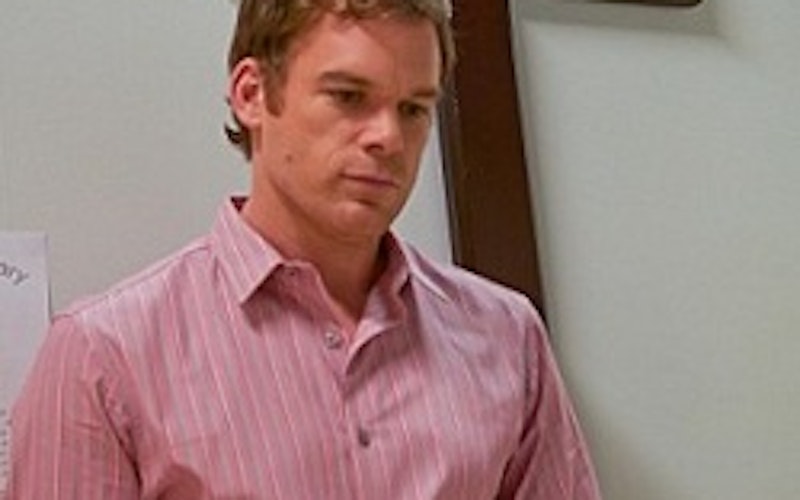
TV
Forcing faith on 'Dexter'
Showtime’s hit show "Dexter" has been a little more miss than hit in recent seasons, but as a longtime fan who has seen every single episode, I can’t change the channel on everyone’s favorite serial killer just yet. This most recent season, however, might be sounding the death knell on my affection. The show’s ability to handle complex and difficult subjects in a delicate if gruesome manner has failed miserably when discussing the issue of religion.
We’re now in season six of the Emmy-nominated and Golden Globe-winning show (the season finale airs Sunday). We’ve explored all different kinds of monsters, watched the serial-killer-with-a-heart Dexter (Michael C. Hall) nearly get caught several times, seen him have the joy of having a family and then suffer the loss of his wife. We’ve ridden along with him and his “dark passenger” - his moniker for his serial-killer identity - on hundreds of kills and been there with him as he disposed of the bodies. And somehow, in the five seasons previous to this, the stories never touched on religion. It was assumed that Dexter and his cohorts were atheists - the only time any of them has expressed anything differently was when one of Dexter’s coworkers became obsessed with “the universe and its potential blessings.”
The effort this season seemed to be a correction of that oversight - a decision which turned quickly into an overcorrection. Early on in the season, we were introduced to Sam (Mos Def), a reformed criminal who is now an Evangelical Christian, running an auto-body shop and employing fellow ex-cons and holding worship services.
Dexter is convinced that Sam is lying about his conversion and that he is still deserving of death for the murder he’d originally gotten away with (Sam spent time in jail on a separate charge and was never charged with the murder of an old girlfriend). In the course of investigating him, Dexter ends up forming an unlikely friendship.
Dexter enters his relationship with Sam thinking that there is something off about him - and he’s absolutely right. It’s immediately obvious to the viewers: Sam’s not very realistic. Despite the considerable acting chops of Mos Def, he never becomes a real character for the audience or for Dexter.
Sam offers up platitudes about darkness and light, giving the impression of vulnerability without actually being vulnerable. He reads like an atheist’s impression of a believer rather than as a believer himself. It’s transparent that Sam exists as a means to an end, as the good guy who is there to show Dexter a path away from killing. But it’s odd that the show’s writers seem to think he had to be there as a Christian, to form a contrast to the serial killers Dexter is chasing down (two killers attempting to herald the apocalypse).
The point is this: rather than have Christian characters as a presence on the show and letting conversations about faith bubble up naturally, we end up with the awkward problem of going 0 to 60 in a few seconds. It’s the problem between forcing a conversation and letting one happen naturally.
Ironically, this highlights a problem for many Christians. Rather than spending our time getting to know people on their level, meeting them where they’re at, we, like the writers on "Dexter," decide that it’s high time for a conversation and force it to happen, which gives the discussion an air of authenticity. Since most people can sniff out disingenuousness a mile away, we shouldn’t be surprised when we try to force that conversation and it fails.
(Photo courtesy of Showtime.)
Topics: TV, Culture At Large, Arts & Leisure, Theology & The Church, Faith, Evangelism, The Church